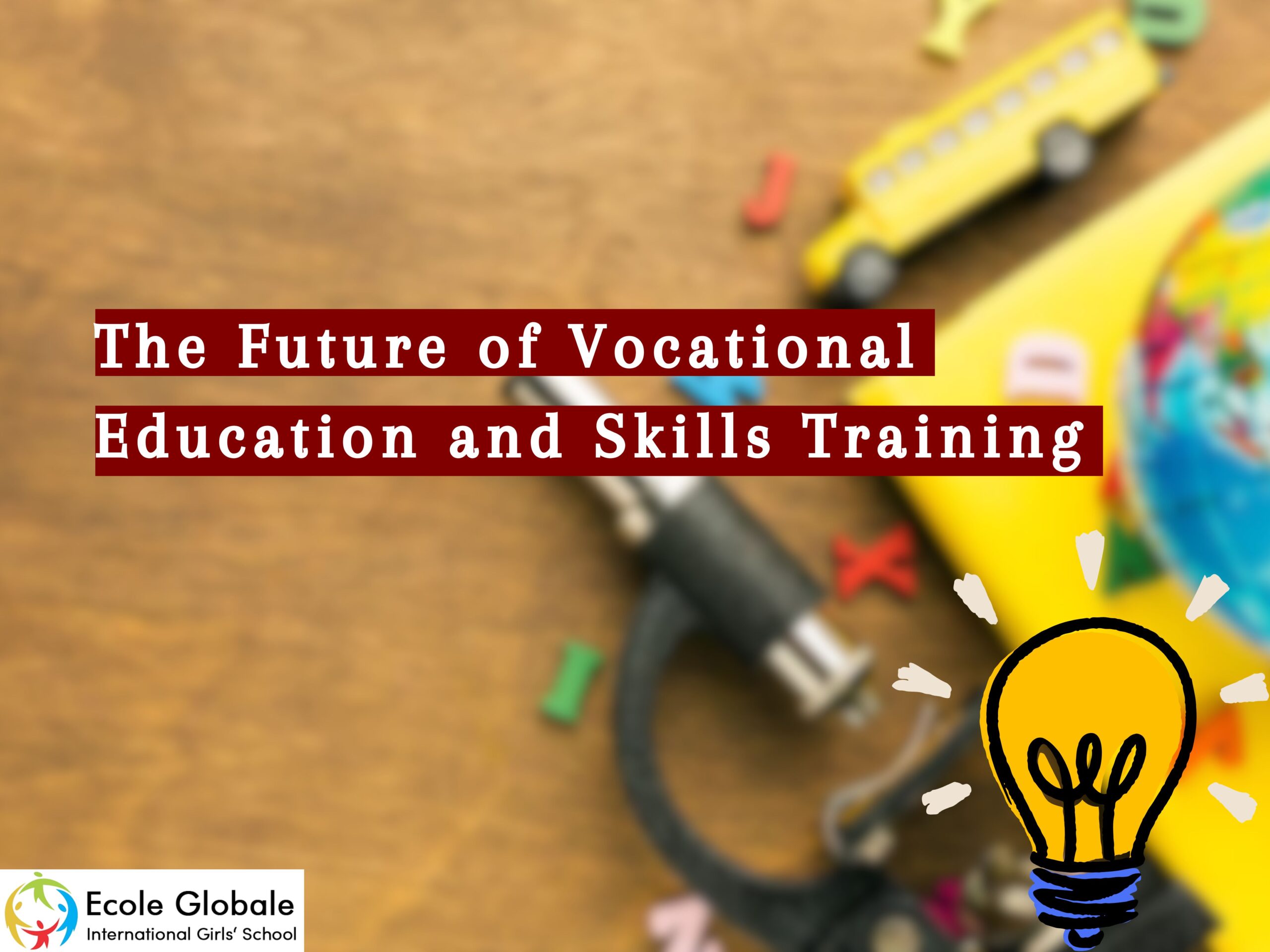Vocational education and skills training is the kind of education that focuses on a specific job or career. It provides students with essential skills (or vocational skills) needed in their future jobs and general knowledge typically acquired at the high school level. As per research conducted by Top Boarding Schools in Dehradun, Vocational education is an important educational field because it aims to provide people with knowledge, skills, abilities, and competencies that enable them to gain a job.
It refers to technical, on-the-job training aimed at enabling the trainee worker to acquire skills and competencies in a specific field of work. It is usually done through instruction, on-the-job experience, and practical training. Vocational education can be either private or public.
Importance of vocational skills

We are witnessing a time when there is a gap between jobs and prospective employees. It has led experts to believe that the majority of employees will lack in-demand skills. The importance of vocational education in the job market is undeniable. The global economy is constantly evolving and changing. It means that we must constantly keep ourselves updated on a variety of subjects to stay relevant in our careers. It has led to an increase in demand for vocational education programs that help individuals build their knowledge base and develop their technical skill sets.
Advances in Technology

The world is changing at a rapid pace and there is no way to stop it. The future of vocational education and skills training lies in the hands of employers, educators, and learners. Vocational education has always been about preparing people for the workplace. But now more than ever we need to ensure that our young people are equipped with the skills they need to succeed in a rapidly changing world.
-
The emergence of new technologies
The constant evolution of technology has enabled people to access information on any topic at their fingertips. It has made learning easier than ever before. It has also given rise to many online courses that offer distance and face-to-face learning.
Another survey done by Top Schools in India shows that Technology will continue to play an integral role in shaping the future of education. With the rise in artificial intelligence and machine learning, it won’t be long before robots and other digital devices replace humans as teachers. The good news is that this could lead to better quality education due to enhanced efficiency and access to resources that are not available today. It may also help improve education outcomes by providing students with more individualized instruction based on their needs.
The future of vocational education and skills training on The internet has made it possible for anyone with an internet connection to learn from anywhere in the world. It has resulted in more people having access to higher education when compared to previous generations depended solely on their local colleges or universities for higher education opportunities.
-
The growing importance of digital skills
The growth in the number of jobs that require digital skills is one of the biggest changes that are taking place in the world today. It has led to a shift in focus from traditional methods of learning to a more modern approach that involves digital learning tools such as apps, websites, and other applications.
The world’s largest economies are facing a serious shortage of workers with the right skills to do this kind of work. This shortage is expected to grow even further as automation continues to take over many jobs that were once done by humans.
To address this problem, governments are working hard on developing new digital training programs that will help people learn how to use these new technologies. In many cases, they are also providing subsidies or tax breaks for companies that hire workers who have undergone this kind of training.
-
Impact of technology on the job market and skill requirements
The world is changing rapidly, driven by advances in technology and globalization. As a result, new job opportunities are emerging while others are disappearing. It has a major impact on how people work, learn, and operate businesses.
The new vocational education and skills training focuses on developing people who can adapt to the ever-changing world of work. They are taught to be entrepreneurs, not just employees. They develop their ideas and start their businesses.
In this context, we must understand what skills our young people need to succeed in tomorrow’s world of work. We know that there will be a continuing demand for high-quality vocational education and training (VET) because it provides students with the skills needed for jobs that don’t exist yet.
Changes in the Job Market

The world of work is changing. Jobs are disappearing, new ones are emerging and the skills required to do them are constantly evolving. The only way to prepare for this shift is to ensure that people have the right skills for the jobs that will be available in the future.
-
Shifting job market trends
Over the last decade, we’ve seen several major shifts in the job market. The manufacturing industry has declined due to outsourcing and automation. Service sector jobs have grown as a result of new technologies such as artificial intelligence (AI) and robotics. This shift has led to increased demand for workers with more advanced skill sets – often referred to as ‘STEM’ (Science, Technology, Engineering, and Mathematics).
-
Impact of globalization on the job market
The world is becoming more competitive and globalized. As a result, employers are looking for individuals with the right skills to meet their needs. In addition to being able to meet these needs, they also want employees who are highly motivated to learn and grow within their organizations. It means that employers are demanding more from their employees than ever before.
The Future of Vocational Education and Skills Training
The future of vocational education and skills training is changing due to several factors such as technology, demographics, economic conditions, and globalization. The emergence of new technologies has made it possible for students to learn from anywhere with an internet connection. The use of technology has also enabled online learning platforms to emerge. They are transforming the way people learn about careers and skills.
-
Emerging trends in vocational education
Demographics are also changing as the world is getting older and this is resulting in a decline in the number of young people entering the workforce.
Economic conditions also play a role in shaping the future of vocational education because they impact how many jobs are available in any given industry.
Globalization also influences the future of vocational education because it allows companies to expand their operations around the world which means more opportunities for employees.
In addition, there are concerns that not enough young people are being prepared for work through education or training programs.
-
Greater emphasis on experiential learning and hands-on training
A lot of careers in this field require extensive training and experience before you can even apply for the job, so it makes sense that these programs would emphasize hands-on learning too.
-
Incorporation of technology in vocational education and skills training
The future of vocational education and skills training will be driven by technological advancements that continue to change our lives and work. Some experts predict that most jobs will require some form of technology skills. More people will need access to these types of training opportunities.
Conclusion
The future of vocational education and skills training will depend on sustainable development and immediate investment in digital literacy training.
This investment in the future of vocational education will require an exponential rise in the integration of technology into classroom curricula to meet industry standards.
In the future, labor and skill shortages may lead to opportunities for lifetime learning and job retraining. The role of vocational education and skills training in shaping the future workforce is increasing. For any queries related to parenting, schooling, or any student-related tips, click here to check out our latest blogs.









